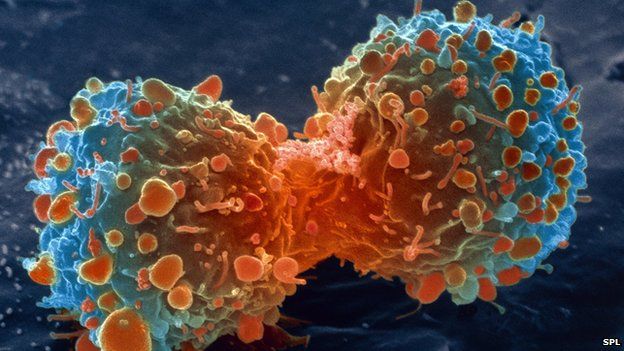By Keith Walker 26/10 16:53 CET | updated 020:57 mn ago
Processed meats cause cancer, says WHO
The World Health Organization (WHO) says processed meat is “carcinogenic to humans” putting sausages in the same category as asbestos and cigarettes. Researchers from the WHO’s International Agency for Research on Cancer (IARC) in Lyon, France, released an evaluation of more than 800 studies from several continents about meat and cancer. The IARC report declared red meat such as beef, lamb and pork as slightly less dangerous, but “probably” in the same cancer-causing risk group. “It has gathered a large body of evidence from scientists around the world, if you like, and they’ve examined the information and it does look rather bleak,” said Linda Johnston, Nutritionist. “It looks like these processed foods and red meats certainly are very strongly-linked, put it that way, to certain types of cancer.” The report found links mainly with bowel cancer. It also noted associations with pancreatic and prostate cancer. It cited an estimate that 34,000 cancer deaths a year are attributable to diets high in processed meat. That could make the traditional fried breakfast a thing of the past Source:
http://www.euronews.com/2015/10/26/red-and-processed-meat-linked-to-cancers-who -says/
=========================== IARC risks confusion with report on cancer-causing meats
By Robert Hackwill 26/10 22:23 CET | updated 018:57 mn ago
The International Agency of Research into Cancer (IARC) has been accused of misleading the public and the media after classifying processed meat alongside tobacco and asbestos as cancer-causing substances. Groups representing meat production businesses immediately seized on the report to accuse the scientists of scaremongering. “IARC’s panel was given the basic task of looking at hazards that meat could pose at some level, under some circumstance, but was not asked to consider any off-setting benefits, like the nutrition that meat delivers or the implications of drastically reducing or removing meat from the diet altogether,” said a press release from the North American Meat Institute. The group noted that sunshine, wine, coffee, grilled food and night work had all previously been linked with cancer by the IARC Crucially, the IARC makes no attempt to differentiate the level of risk in its classifications, instead concentrating on the confidence with which its scientists can connect a substance to disease. “Processed meat has been classified as carcinogenic along with other well-known substances, including tobacco smoking, and asbestos, even air pollution, but it’s important to recognize that those classifications relate to the strength of scientific evidence for carcinogenicity and not to the level of risk. So even though they are all on the same category, the level of risks for tobacco smoking is much larger than the risk associated with eating meat, ten times larger than the risk for processed meat, for example,” says Dr. Dana Loomis, an IARC researcher. Dr Kurt Straif set out the agency’s position : “From the combined analysis of several studies there was about a 17 percent increase of cancers of the colorectum per portion of about 50 grams per day of processed meat. Now that increased risk is about similar for red meat – it’s 1.17 per 100 grams – but again the evidence if it’s really causally related is not as strong yet.” In addition, the scientists did not distinguish between different types of processed meat – which could range from scraps of carcasses mixed with preservatives in a factory to slices of ham cured with salt at the farmyard. Of course there are other reasons not to eat meat – the agricultural systems developed to mass produce animals are inefficient and unsustainable under current consumption growth. For a fuller critique of the IARC report take a look at this article from The Atlantic. or this from Slate By Robert Hackwill.
Source:
http://www.euronews.com/2015/10/26/iarc-confuses-consumers-and-media-with-repor t-on-cancer-causing-meats/
===================
The other benefit to eating less red meat
http://edition.cnn.com/2015/10/26/opinions/nestle-meat-cancer/

Comments